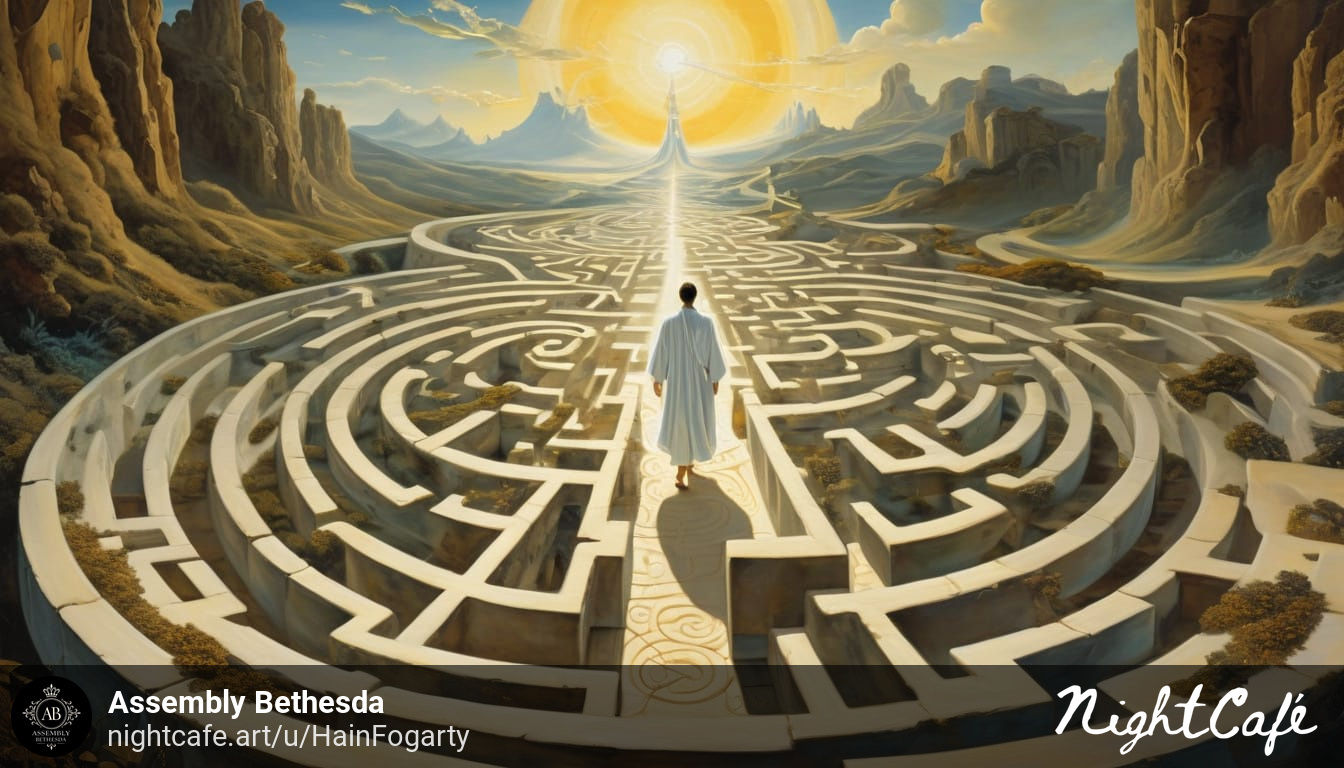Navigating the Divine Maze: Why Christians Claim Their God Encounters Trump the Rest
In a world buzzing with spiritual stories, from Buddhist monks’ serene meditations to Sufi whirlers’ ecstatic dances, it’s easy to wonder: How do Christians square their circle? Why do they insist that their personal brush with the divine, that quiet nudge during prayer or bolt of clarity in worship, holds more truth than the equally profound experiences of those of other faiths? From dusty theological texts to heated family dinners, this question has sparked endless debates.
As someone who has waded through the philosophical weeds (and occasionally gotten tangled), I believe the answer lies in a potent brew of history, transformation, and worldview loyalty. It is also a lightning rod for criticisms about bias and exclusivity. Don’t be afraid; we are about to dive deep into religious one-upmanship.
Exclusivity versus pluralism is at the heart of this tension. Evangelical Christians are among those who hold that Jesus is more than a way to God; he is the way, echoing John 14:6’s bold assertion: “I am the way and the truth and the life.” Personal experiences for them aren’t floating vibes; they’re part of a cosmic narrative that claims to be the only one true one.
You can think of it like a detective novel: Your gut instinct about the plot twist only makes sense if it matches the clues throughout the book. Christianity, they argue, has plenty of those clues.
The Anchor of History: Not Just Feelings, But Footprints in Time
Christian encounters are distinguished by their reliance on verifiable history, claimed by exclusivists. Unlike Hinduism’s timeless, cyclical mysticism-where divine unions feel eternal but ahistorical, Christian “God moments” revolve around the scandalous claim that the Creator crashed into our timeline as a first-century Jewish carpenter.
Jesus’ life, teachings, crucifixion, and resurrection are not myths whispered in caves; they are documented by eyewitnesses in texts such as the Gospels, which historians have scrutinized as being remarkably reliable for texts of that date.
Take this woman’s personal testimony. A woman in the throes of grief senses a comforting presence, whispers a prayer, and finds peace that aligns with God’s promise to draw near the brokenhearted in Psalm 34. For her, this isn’t generic spirituality; the same God who raised Jesus from the dead is extending a hand. Apologists such as J. Warner Wallace amplify this in works such as Cold-Case Christianity, treating faith like a courtroom case.
From the apostles’ fearless martyrdoms to modern revivals, they transformed lives en masse. There are miracles in other faiths—think of documented healings in Islamic shrines, but Christianity’s emphasis on a falsifiable event (resurrection) makes its experiences seem similar to this seismic shift, as it hinges on a falsifiable event.
Fruits of the Spirit: When Encounters Change Everything
Nevertheless, history alone cannot convince; it is the aftershocks that do the trick. Jesus himself warned against flashy signs without substance (Matthew 7:15-20), insuring that people judge trees by their fruits. A drug-addled skeptic encounters grace at a church service, kicks the habit, and rebuilds shattered relationships.
Christian exclusivists often refer to Galatians 5’s “fruit of the Spirit” as the litmus test. It is not just a sense of well-being; it is measurable change, they argue, which surpasses the temporary highs of other traditions’ rituals.
The philosopher William Alston supports this argument, comparing religious experiences to sensory experiences: You believe your eyes see a tree until evidence indicates otherwise. In Christianity’s ecosystem, these encounters cohere, answered prayers dovetail with Scripture, and community fosters growth. For believers, the depth of transformation whispers, “This one is real,” in comparison to, say, a New Age crystal healer’s bliss: Potent, sure, but does it require an ethical overhaul or eternal stakes?
The Evangelist’s Lens: Reclaiming the Competition
The missionaries do not dismiss a Hindu vision of Krishna as bunk; rather, they reframe it. “That’s God’s whisper, guiding you to the full light of Christ,” they might say. Or, if it clashes (like polytheism), they invoke Ephesians 6’s spiritual warfare, demonic mimicry abounds. The dismissal is not smug; it is a worldview in which all roads lead to Calvary if they are true. This is why Christians can admire Rumi’s poetry even though they contend Sufism does not understand redemption through the cross.
The Pluralist Pushback: A Hall of Mirrors?
Fair enough, but hold the applause. Pluralists—and even some inclusive Christians—concry foul. If every faith’s devotees report life-altering divine hugs, who is the referee? Hick’s classic pluralism holds that all religions function as cultural lenses on the same ineffable “Real,” as blind men describe an elephant. The Jah revelation of a Rastafarian feels as genuine as the Holy Spirit baptism of a Christian. Why do we privilege one? Experiences are a result of brain chemistry interacting with culture, not objective data.
A thorny ethical issue, it is. Exclusivism exposes billions to hell for zip codes, an unfair principle, if God is compassionate. Logically, there is no neutral yardstick; science probes the brain during prayer but cannot identify the Caller. As philosopher Alvin Plantinga argues, belief is “properly basic,” but this cuts both ways. In our diverse globe, exclusivism can breed divisions, although proponents contend that truth is not democratic; it is discovered rather than voted upon.
Splashing Between Streams: A Humble Close
So, can Christians claim their experiences are “truer”? They are betting on a story they believe to be more coherent and compelling than the rest. It is true that we are all amphibians, half in the pool of faith and half in the shallows of doubt. Maybe the real win is building bridges: Tell your story, listen to others’, and let mystery take over.

